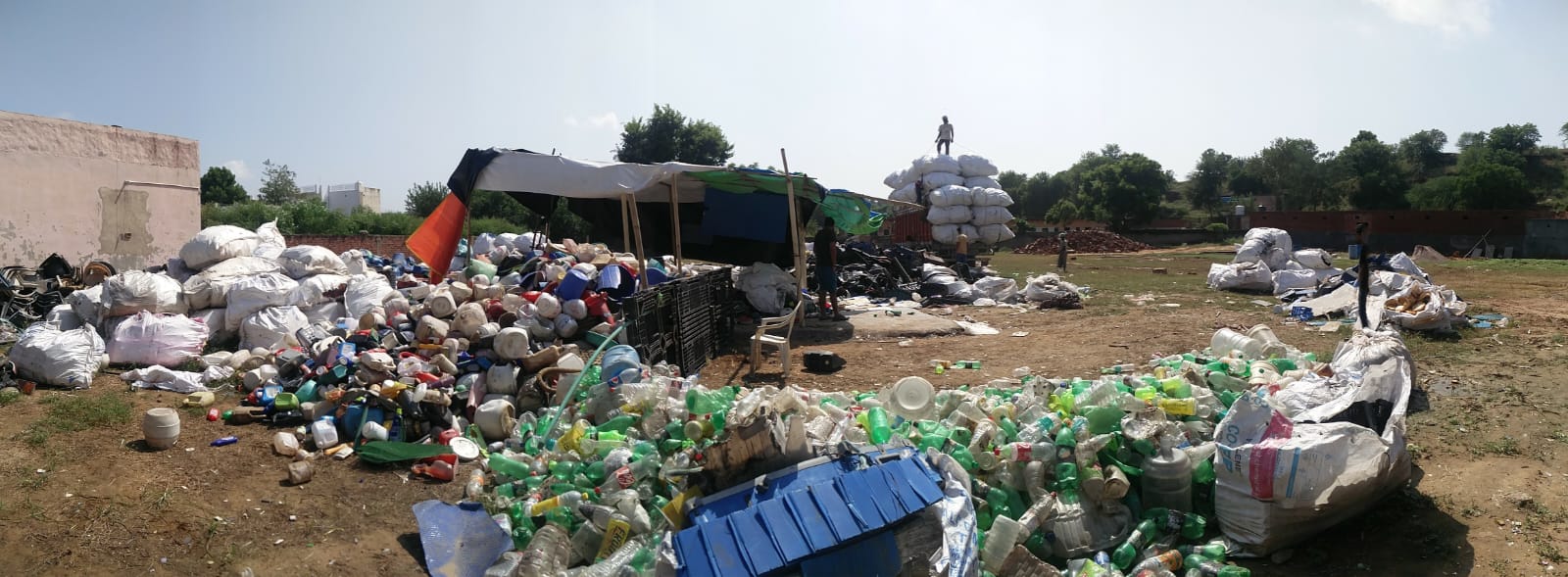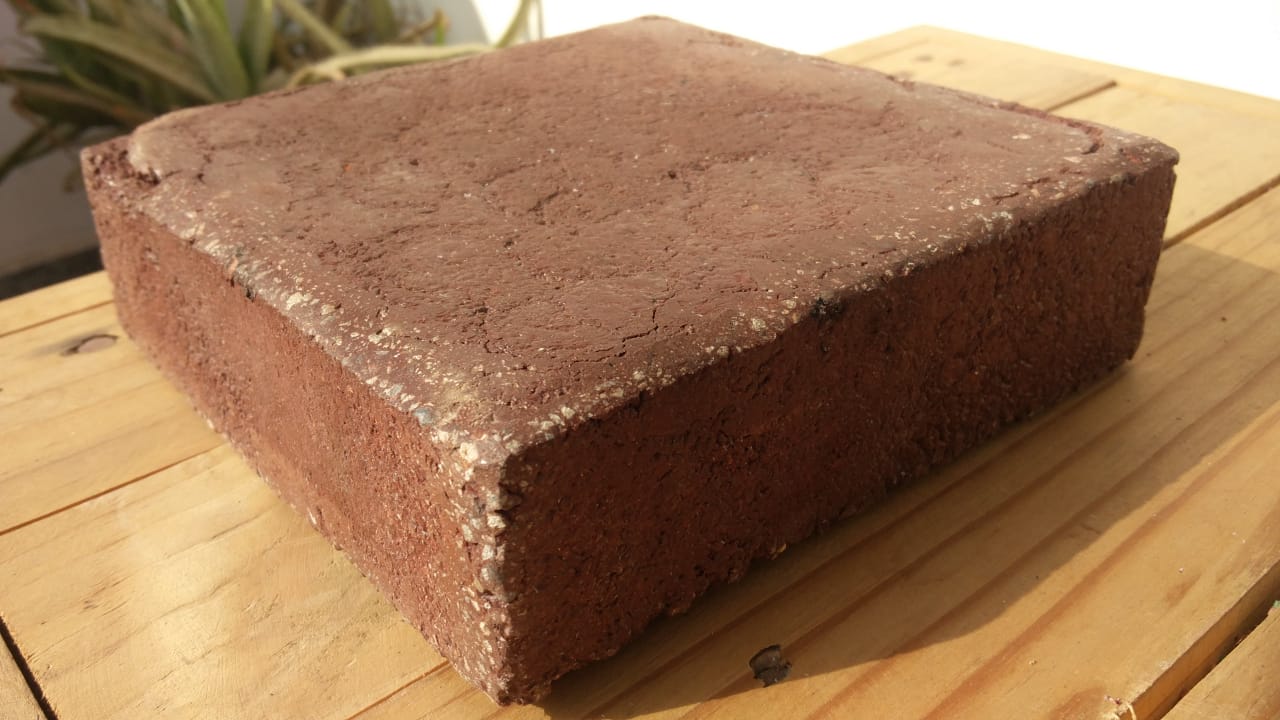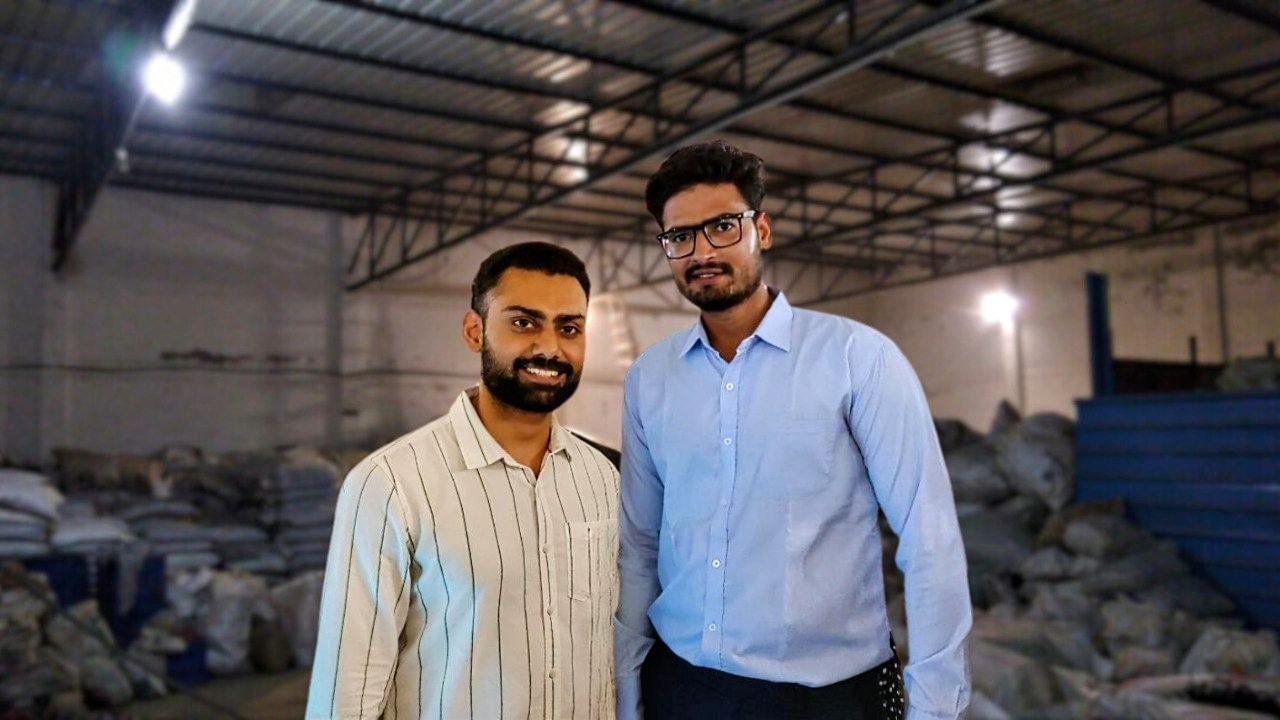We’ve all seen it: trash piling up on street corners, plastic choking our waterways. Yet, we often turn a blind eye; the trash keeps piling. But Rishabh Patel and Nitin Yadav, the founders of ‘Dump In Bin’, saw a different path.
What began as a casual realisation during a car ride has now evolved into a groundbreaking venture revolutionising waste management and construction. Their latest innovation, PLAVE — a sustainable, plastic-based alternative to cement — promises to be a game-changer in the fight against pollution.
Rishabh and Nitin, old college friends, were no strangers to the challenges of waste management and the industry associated with it. With a background in tech and a stint in his college’s incubator programme, Rishabh was on the road to starting a career as a research associate and project manager. However, a few months in the corporate world made him realise that the rigid structure of traditional organisations was not for him; he decided to take a break.
Back home in 2016, his mind wandered around looking for the path his heart wanted to follow and his “eureka moment” would come during a drive back to Gurgaon.

“I saw that the Delhi-Jaipur highway had a lot of paper waste just flying about on the road. It was probably an aftermath of some function. For a moment, I thought to myself I don’t want to live in India anymore. But the very next moment, I thought, ‘Why am I being a critic like every other person?’ With just a slight shift in perspective, I saw that it wasn’t waste floating around, but ideas and opportunities that needed to be caught and worked through,” Rishabh tells The Better India.
Roping in Kabadi wallas
With a new vision, Rishabh dialled Nitin. “He and I have always had complimentary qualities. So, I told him that I wanted to start something, and he was immediately on board,” says Rishabh. The two soon became partners in a venture that would bridge the gap between skill and passion.
“We went around just looking at dumpyards and the heaps of trash that was piled up there, either waiting to be burnt or to end up in a landfill for life; plastic was the biggest culprit here,” shares Nitin.
After a few months of research, compliance checks, and operational planning, the two friends registered their company, ‘Dump In Bin’. However, tapping into an industry that is largely informal, threw up several challenges.
During the initial days of the company, Rishabh and Nitin focused on aggregating waste from small-scale collectors or kabadi wallas in and around Delhi. These informal waste workers were an integral part of their operations, collecting waste from households and streets.
By building strong relationships with 15-20 clusters of garbage collectors, ‘Dump In Bin’ managed to thrive in the early stages. “Because when we were working with some larger sellers, we could only break even. But working with these people, we were doing well for ourselves and them,” shares Rishabh.
Soon, they realised that industrial waste, particularly plastic, offered the greatest potential for recycling and reuse. But recycling plastic wasn’t easy.
“The complexity of plastic is that you cannot intermix it. Different grades of plastic need to be processed separately, so that the end product is actually useful,” Rishabh points out.
From challenges to Rs 10 lakh in profits
After months of research, and trial-and-error, the company chose to focus on the automotive industry, where high-grade plastic is used for manufacturing car parts. ‘Dump In Bin’ began processing plastic waste from automotive manufacturers, refining their segregation process to make sure that plastics were sorted properly before being recycled.
Through a thorough and diligent process, the company built expertise in plastic recycling, particularly in turning plastic waste into usable raw materials. “The initial trails were maddening! We even built small chulas and experimented with melting small amounts of plastic in pans, using different methods at a very small scale to see what works,” says Nitin.

Today, they help small and medium-sized manufacturing companies (SMEs) to make a more sustainable and cheaper choice in their production process. “Recycled plastic can be used for anything, but we make sure it’s not used for or around food packaging. Because it’s still plastic, recycled or not,” adds Rishabh.
Their focus on sustainability has paid off. ‘Dump In Bin’ has recycled over 48 lakh kg of plastic, bringing in a revenue of Rs 10 lakh every month.
PLAVE: A breakthrough in sustainability
However, the founders had bigger aspirations. They didn’t want to be just another recycling company; they wanted to solve the problem of waste in a more tangible and sustainable way. The idea of creating a product that could replace cement, one of the most carbon-intensive materials used in construction, became their next goal.
According to the World Economic Forum, global cement manufacturing produced 1.6 billion metric tonnes of CO2 in 2022 alone — which is about 8% of the world’s total CO2 emissions, making it a significant contributor to climate change. The challenge was daunting: they needed to find a way to make a product that could replace cement but still meet the high-quality standards required for construction materials.
The breakthrough came when they stumbled upon a decade-old research project that explored mixing plastic with sand to create concrete. However, the research was still in its infancy, and the existing products didn’t match the quality of cement.
After nearly two years of research and development, they created PLAVE (a play on the words ‘pavement’ and ‘plastic’) — a unique construction material made from a blend of plastic waste and demolition debris.

PLAVE was designed so that waste is not only consumed but transformed into a product that can be used again. “It’s a win-win scenario,” says Rishabh. “We win because we make money doing something good, the people we work with win because they get good products at a great cost, and the world wins because the work at the end of the day is good.”
One of the most innovative products they have developed using this material is permeable pavement, which allows water to pass through it and aids in groundwater recharge, helping to keep roads dry during the rainy season.
Community engagement and social impact
Beyond just business, ‘Dump In Bin’ is deeply committed to social impact. A chance encounter with Parnika Shrimali, a Gurgaon resident, who wanted to dispose of household plastic waste is now turning into a partnership.
After finding out about the company, Parnika, who had some household plastic waste that she needed to put to use, contacted Rishabh. “We went to collect the trash and it was a very small amount compared to what we usually work with. But she was so passionate about not throwing away the trash mindlessly, we couldn’t help but take it off her hands,” shares Rishabh. Parnika’s apartment complex is now collaborating with ‘Dump In Bin’ to set up regular plastic waste collection.
Rishabh and Nitin also wish to work closely with ragpickers — the unsung heroes of the waste management industry who often work in unsafe, hazardous conditions. “We spoke to them and tried to convince them that whatever you are doing in collaboration with different contractors is a different thing, but we would like to work with you, give you a proper place to live and just make the job more dignified,” Rishabh says.
With PLAVE gaining traction and their waste collection operations expanding, Rishabh and Nitin are now working towards setting up a Material Recovery Facility (MRF) and are exploring new ways to reduce plastic consumption across industries.
“We want to make sure that waste doesn’t just pile up — it gets used, it gets recycled, and it becomes a part of something new,” says Rishabh.
Edited by Arunava Banerjee; All images courtesy Dump In Bin

No comments:
Post a Comment